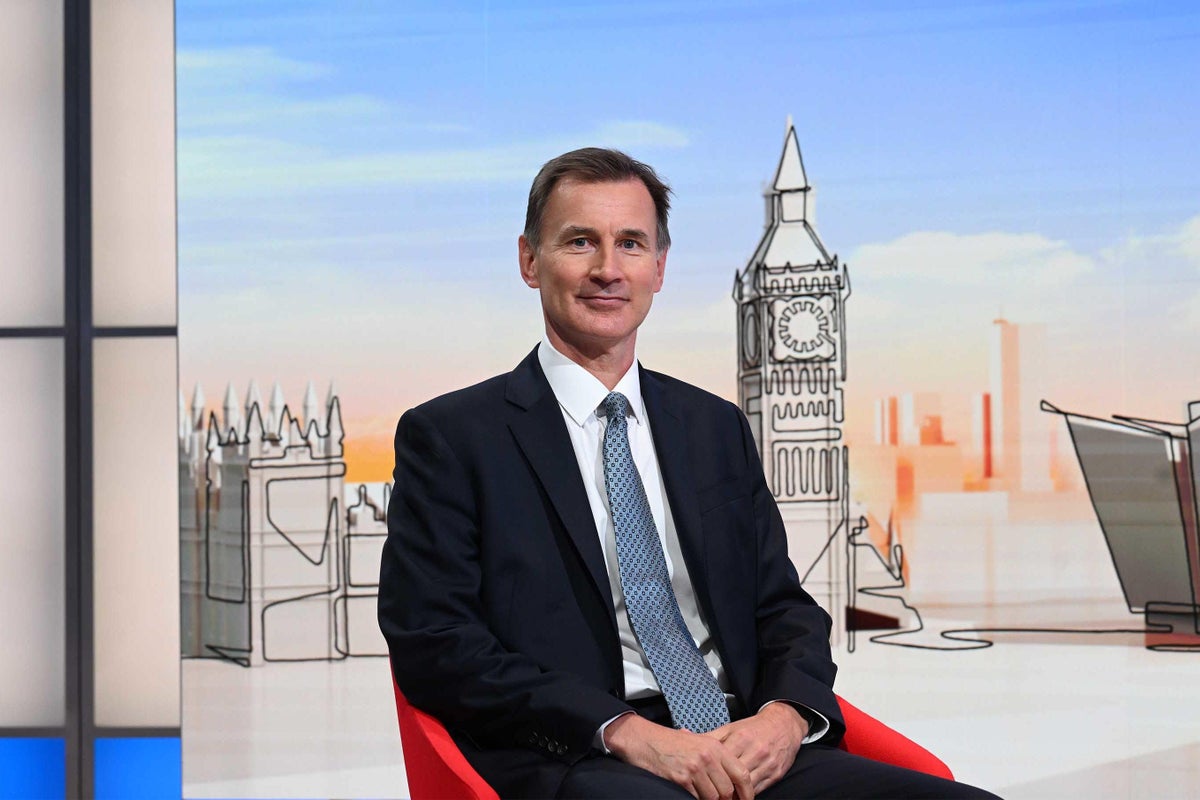
Money to repair school buildings at risk of collapse will come from the Department for Education’s (DfE) existing capital budget, it is understood.
Chancellor Jeremy Hunt promised on Sunday to “spend what it takes” to make classrooms safe after many were forced shut at the start of the new term over concerns about reinforced autoclaved aerated concrete (Raac).
The Chancellor moved on the weekend to reassure parents that an “exhaustive process” has been carried out to identify any unsafe buildings, amid accusations ministers failed to act quickly enough to mitigate risks raised in 2018.
Speaking on the BBC’s Sunday With Laura Kuenssberg show, Mr Hunt would not speculate on the potential cost of fixing the problem, but said: “We will spend what it takes to make sure children can go to school safely, yes.”
Treasury sources later said the cost of repairs could be managed through the DfE’s existing capital budget.
More than 100 schools and colleges have been told by the government to fully or partially shut buildings following the recent collapse of a beam previously considered safe.
Schools minister Nick Gibb has admitted more classrooms could be forced to shut and Mr Hunt on Sunday confirmed further structural problems could emerge in the coming “weeks or months”.
The Chancellor said education secretary Gillian Keegan had “acted immediately” after new information came to light over the summer about the potential risk Raac, a lightweight material used up to the mid-1990s.
Questions remain over the extent to which the problem has been complicated by the co-existence of asbestos in schools and other public buildings.
Speaking on Sunday, the chancellor said the government would act “whether it is Raac or the wider asbestos issue”, promising to “do what it takes to keep children safe”.
He told Sunday With Trevor Phillips on Sky News: “We have 22,000 schools in the country and there has been since that incident a huge programme going through this Raac/asbestos issue because we want to be absolutely sure that every child is safe.”
Unions were angered by uncertainty about which costs will be covered by central government.
Ministers earlier sought to dampen the backlash by altering guidance to suggest the expense of temporary accommodation elsewhere would be covered by the government.
But on Sunday Mr Hunt would not guarantee that headteachers would be reimbursed with extra money for rentals, saying only that “we will make sure they can keep their children safe”.
General secretary of the National Education Union (NEU) Daniel Kebede said: “It is … essential that all costs are covered by government, not this halfway house where school leaders are uncertain of and unable to trust government guidance as to what costs will be incurred by their school.”
Meanwhile, Ms Keegan has promised the crisis will not lead to a “return to the dark days of lockdown”, despite the new guidance advising schools to use pandemic-style remote learning as a last resort if they are unable to hold face-to-face lessons.
Writing in The Sun On Sunday, she said there was “no choice” other than closures after a “handful of cases” where Raac had failed.
Remote learning for children unable to access face-to-face lessons should last “days, not weeks”, the government has said, but ministers have not said exactly when the disruption might ease.
In the meantime, education leaders have been encouraged to use community centres, an “empty local office building” or other schools for the “first few weeks” while structural supports are installed to mitigate the risk of collapse.
Labour said the spending promise was a “bare bones” response to a crisis that could become “the defining image of 13 years of Tory government”.
Shadow education secretary Bridget Phillipson said she was concerned about the plan to fund mitigation work with the existing budget, saying “that could then have an impact on other measures that need to happen within schools whether it’s addressing asbestos or the wider school rebuilding programme”.
Ms Keegan will give Parliament an update on the situation next week amid growing calls for transparency of the extent to which Raac puts the public sector estate at risk.
Labour plans to force a vote next week to compel the government to publish a list of affected schools, which ministers have said they will do “in due course”.
Schools in Scotland, Wales and Northern Ireland are being assessed for the material.
The Scottish government has said Raac is present in 35 schools, but that none posed an”immediate risk” to pupil safety.
The Welsh government said councils and colleges have not reported any presence of Raac.







